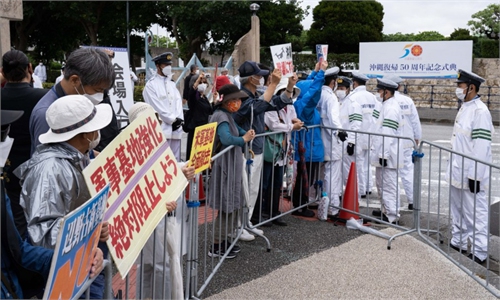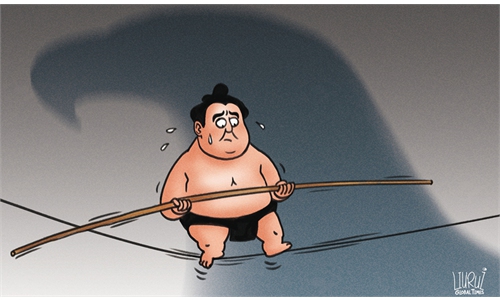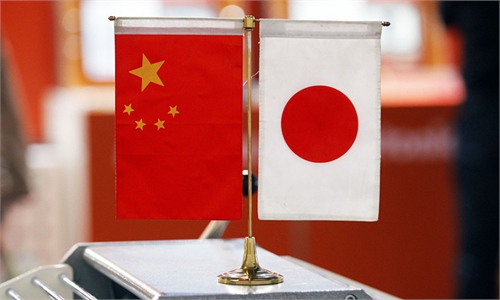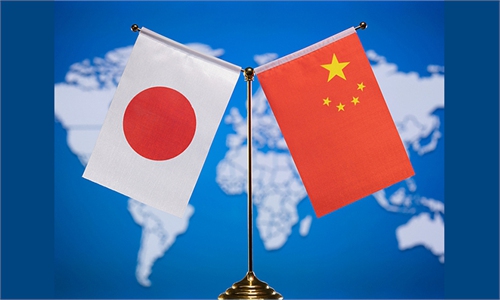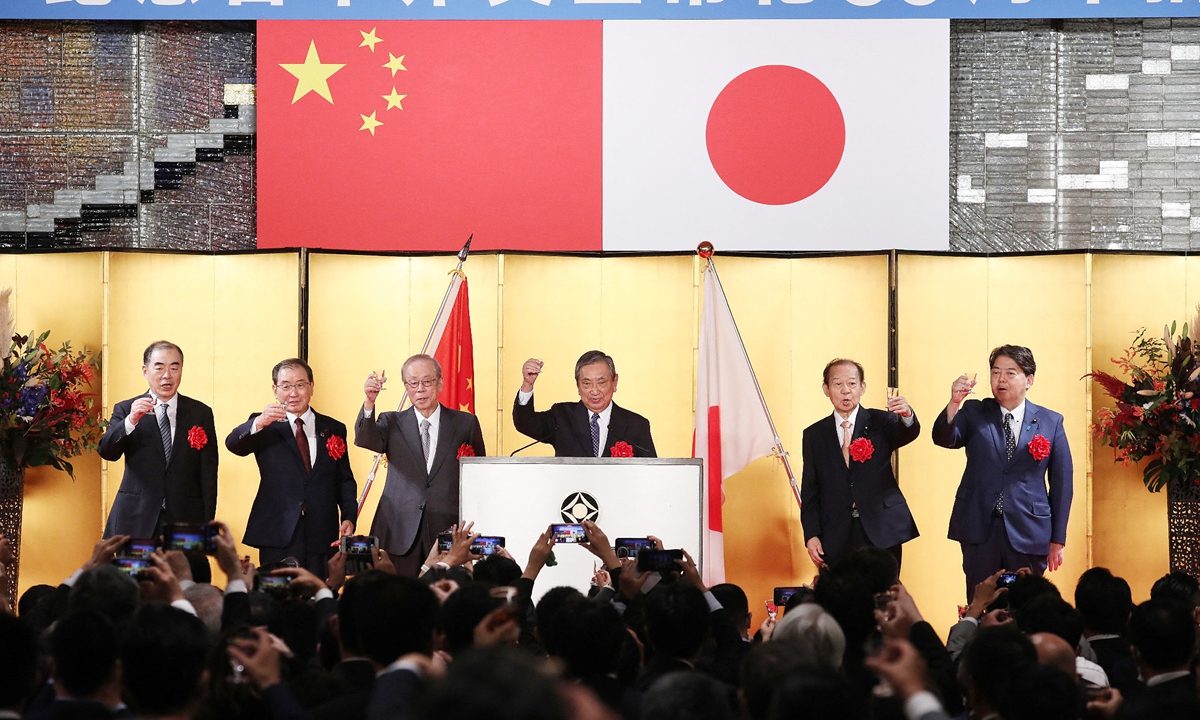
A reception commemorating the 50th anniversary of the normalization of Japan-China diplomatic relations is held in Tokyo on September 29, 2022. Photo: VCG
Chinese leaders on Thursday exchanged congratulatory messages with Japanese Prime Minister Fumio Kishida over the 50th anniversary of the normalization of China-Japan diplomatic relations, with analysts saying China and Japan show great sincerity to each other to keep developing the ties in a world with increasing uncertainties, despite the two sides have differences on many issues.The China-Japan relations are not only significant for the two countries, but also important for the whole Asia, said experts. Based on the experiences in the past 50 years, it's clear that the cooperation will benefit both sides, while confrontation will only serve the interest of external forces that are more than happy to bring chaos to the region and to contain the two major Asian economies' development.
Therefore, both sides, especially the Japanese side, need "political courage and strategic thinking," to withstand the impact from the external forces, especially the US, and make more pragmatic and independent decisions to fix and develop ties with China, which could mutually benefit both sides and add more certainty to this uncertain world, said experts.
Exchange messages
In his message to Kishida, Chinese President Xi Jinping pointed out that 50 years ago, the then Chinese and Japanese leaders grasped the situation with foresight and made a major political decision to normalize China-Japan diplomatic relations, which opened a new chapter in bilateral relations, the Xinhua News Agency reported.
Xi stressed that he attaches great importance to the development of China-Japan relations, and stands ready to work with Kishida to lead both sides to jointly build a China-Japan relationship that meets the demands of the new era by taking the 50th anniversary of the normalization of diplomatic ties as an opportunity and following the trend of the times.
In his message, Kishida said 50 years ago, the then Chinese and Japanese leaders, with strategic thinking and political courage, opened a new historic course in Japan-China relations.
During the past 50 years, Japan-China cooperation in a wide range of fields such as economy, culture and personnel exchanges, has made remarkable progress, Kishida said, adding that it is of great significance for the two sides to jointly create a new future for Japan-China relations.
Da Zhigang, director of the Institute of Northeast Asian Studies at the Heilongjiang Provincial Academy of Social Sciences, told the Global Times on Thursday that "Although China and Japan still have many divergences on issues including the sovereignty dispute in the East China Sea, the Taiwan Straits situation, the historical problem, and the Russia-Ukraine conflict, the leaders of the both sides still use the chance to exchange congratulatory messages, and this just proves that the two countries have a strong desire to improve and develop the relations."
The Japanese side stands ready to join hands with the Chinese side to focus on promoting the development of constructive and stable Japan-China relations as well as peace and prosperity of the two countries, the region and the world in the next 50 years, Kishida said.
On the same day, Chinese Premier Li Keqiang and Kishida also exchanged congratulations. Li said China and Japan are geographically close to each other and culturally connected, and are both important countries in the region and the international community. Li expected the two sides to push for a healthy and stable development of China-Japan relations with the 50th anniversary of the normalization of diplomatic ties as a new starting point. Da said China and Japan are the second and third largest economies of the world, and the two major powers with great potentials in Asia, so the bilateral ties do not just concern the development of the two countries, but will also have great influence on the future of Asia and even the world.
The obstacles for the two sides to develop ties include some long-standing problems like the historical issue and sovereignty dispute, and also some new ones like the pandemic and the intensifying China-US tension, "so we hope Kishida can remember what he said to the Chinese leader, to inherit the 'strategic thinking and political courage' of his predecessors since 1972, to also open a new era for the bilateral ties together with the Chinese side," said a Beijing-based expert on international relations who asked for anonymity.
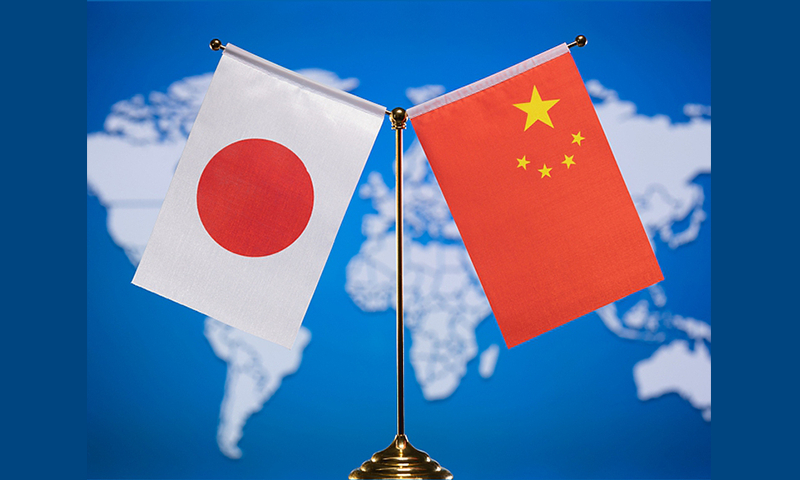
China Japan
Desire for improved ties
Some Western media said the "low key celebration" shows "rift" between two Asian major powers, but in fact many events have been held by the two countries in recent days to celebrate the 50th anniversary of the normalization of diplomatic ties among the business circle, diplomats, scholars and the media.
Chinese analysts said without the impact from the COVID-19 pandemic, there would have been more exchanges between the two countries, because the bilateral ties are still highly complementary and mutually needed, and the latest exchange of congratulatory messages between the leaders of the two countries signaled that the two sides have strong desire and will to push for better bilateral relations.
The congratulatory messages from both Chinese and Japanese leaders were read out at an event hosted in the afternoon of Thursday by the Japan Business Federation, the country's most powerful business lobby better known as Keidanren, the Kyodo News reported. Chinese Ambassador to Japan Kong Xuanyou also attended the event in Tokyo.
Japanese Foreign Minister Yoshimasa Hayashi, who attended the Keidanren event in Tokyo, said in a speech that Japan and China are two major powers that have a responsibility for peace and prosperity in the region.
"Eyes on next 50 years, we should keep candid dialogue and march forward to the goal, which set by the leaders of the two countries, of building constructive and stable Japan-China relations with our own efforts," said the Japanese foreign minister.
Former Prime Minister Yasuo Fukuda, who also attended the event, said that in the future 50 or even 100 years, there is no other way for the two countries but to safeguard and develop the Japan-China relations with friendship and cooperation with all efforts.
Masakazu Tokura, chairman of Keidanren, said at the beginning of the event, "For Japan, the relationship with China is one of the most important bilateral relationships."
"The flow of people between Japan and China has stalled against a backdrop of the coronavirus pandemic and international affairs have been getting more complex and opaque," he said.
Chen Yang, an expert from the Institute of Japan Studies at Liaoning University, told the Global Times that the celebrations in both countries are mainly conducted by civil groups, including the circles of academics, media and business. In the history of China-Japan relations, the civil groups normally play significant roles to connect the two countries, especially during the time of China-Japan tensions, because they are much more flexible.
"When the exchanges dominated by non-governmental sectors are more than the official ones, it proves that the intergovernmental ties are not very optimistic at the moment, but even under such circumstance, the top leaders of the both sides still exchange their good wishes and this brings confidence to the two sides on managing differences and improving cooperation," Chen noted.
Before the COVID-19 pandemic, Japanese former prime minister Shinzo Abe once had a plan to invite the Chinese top leader to visit Japan in 2020 and to open a new page for the bilateral ties, so if one day in the future, obstacles like the pandemic have been removed, the warming people-to-people exchanges will come back again, said some analysts.
"But in order to jointly build a China-Japan relationship that meets the demands of the new era, there are some more efforts that both sides need to pay. At least, both sides don't need to see each other as a threat. Tokyo needs to ensure that it won't be used by the US to contain China, and stay away from the sensitive Taiwan question, which is China's internal affair and a core interest of China," said Da.
Chen noted that Japan as a sovereign country has the right to develop ties with the US, but the Japan-US ties should not target any third party. "At present, Japan is taking the US side. From China's perspective, it needs to increase mutual trust and cooperation with Japan on the one hand, but on the other hand, it also needs to respond to the provocations launched by the US and Japan against China's core interests in the region."
The China-Japan relations have experienced tensions many times in the past 50 years, but as long as the cooperation is healthy, both sides will enjoy concrete economic benefits, and today, the world is full of uncertainties and turbulences, there is nothing more important than the certainty that could bring joint development and keep the region away from chaos and conflict, and hopefully, the Japanese leaders can understand this, said Chinese experts.

